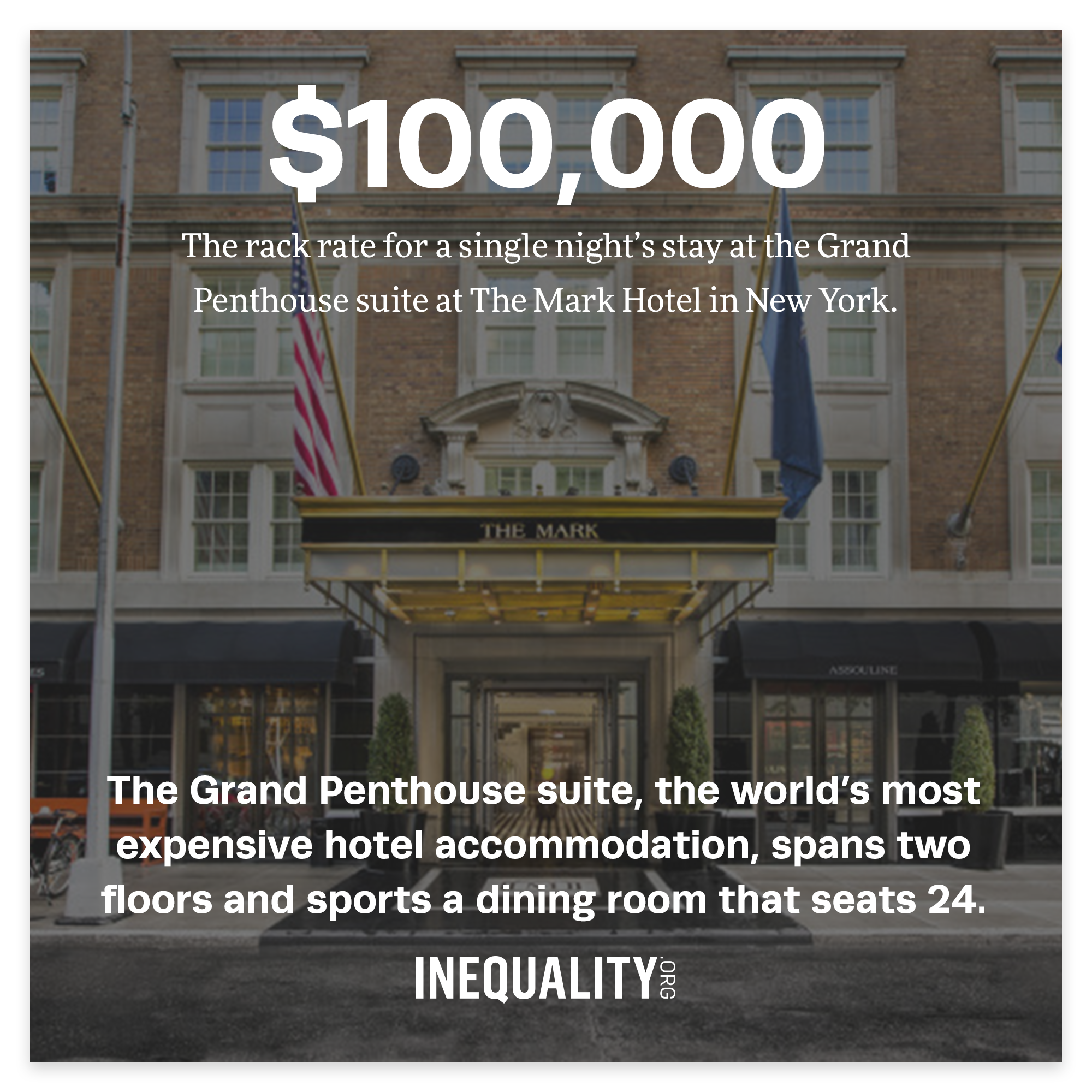|
THIS WEEK
|
Many of us, all around the world, have at times felt powerless in the face of the Trump era’s relentless inequality-increasing agenda. Not the folks behind Momentum, the grassroots UK initiative that last month shocked the political-insider world.
Thanks in great part to the imagination — and dedication — of Momentum’s bottom-up efforts, the Labour Party’s Jeremy Corbyn far exceeded political expectations in the UK parliamentary elections. I sat down with two Momentum stalwarts shortly after election day. In this week’s issue, we have my interview with them — and a good deal more!
Chuck Collins, for the Institute for Policy Studies Inequality.org team |
|
|
|
|
INEQUALITY BY THE NUMBERS
|
 |
|
|
|
|
|
|
FACES ON THE FRONTLINES
|
 |
| Behind the Stunning Gains for British Labour |
| On June 8, the UK Labour Party and its standard-bearer, Jeremy Corbyn, experienced a stunning reversal of fortune. Widely derided by pundits only two months earlier, Labour and Corbyn almost won the British national election. Running under the slogan For the Many, Not the Few, Labour put issues of inequality front and center. How has Labour come so far so fast? Many observers credit the grassroots mobilization known as Momentum, a group with 23,000 members nationwide and 150 local chapters. What can we learn from Momentum? National organizer Emma Rees and volunteer Deborah Waters share the lessons from their triumph this spring. |
|
|
|
|
|
|
WORDS OF WISDOM
|
 |
|
|
|
|
|
PETULANT PLUTOCRAT
OF THE WEEK
|
|
A Bit of Billionaire Luck Runs Out in Tax Court
|
| Billionaire real estate magnate Stephen Ross, the Detroit Free Press noted earlier this month, ranks as “a generous and committed philanthropist.” But generous to who? Ross, as Forbes analyst Peter Reilly details, claimed a charitable tax deduction on donations to the University of Michigan worth over ten times the amount that the University actually realized. His dealings, says Reilly, amounted “to a tax scam out of which the University got a cut.” Ross told a group of pro football players earlier this month that becoming a billionaire requires “a lot of luck.” Ross certainly is lucky — that he’s not going to jail. The IRS has just won the third of three Tax Court decisions on the Ross-Michigan scam, and Ross only figures to lose some superfluous millions off his over $7-billion fortune. |
|
|
|
|
MUST READS
|
On Inequality.org this week, Jessicah Pierre confronts one of the fiercest drivers of inequality in the United States today, the $1.3 trillion in student debt. That staggering sum bears down disproportionately on black women, compounding already existing pay gaps along racial and gender lines. Sarah Anderson, meanwhile, outlines Wall Street’s war on consumer protection.
Elsewhere on the web, the Seattle-based private-equity investor Nick Hanauer calls on his fellow plutocrats to come to their senses and realize that not sharing the wealth — at paycheck time — ultimately undermines their own business self-interest.
In the gentrifying Washington, D.C., Petula Dvorak relays in The Washington Post, even the slightly wealthy have trouble making a go. High rents and $25 hamburgers can dent a six-figure income in no time at all. What could help gentrification get even worse? A huge pay-out to Wall Street would probably do the trick. Unfortunately, that’s just what’s on tap from the mass privatization efforts of the Trump administration, as Rebecca Burns explains in In These Times.
So what do the ultra wealthy have to worry about? Try nuclear calamity. Luxury bunkers are popping down all over, writes John Carl Baker in the New Republic. America’s CEOs can afford almost any luxury. Their pay has soared 937 percent since 1978, reports the Economic Policy Institute. Dominic Rushe explains what’s driving CEO pay in the Guardian.
Also in the Guardian: a more uplifting tale from Max Lawson, who wants us to know that inequality is not inevitable. Countries like Namibia are blazing an egalitarian path that shows what taking on inequality in a serious way can look like. |
|
|
|
|
GREED AT A GLANCE
|
 |
|
|
|
|
|
|
TOO MUCH
|
|
Do Your Pols Just Fake It on Fighting Inequality?
|
|
How can we tell which nations are just blowing smoke when they sign on to global anti-inequality declarations? Oxfam, the activist global charity, has just teamed up with the Development Finance International consulting group to unveil the first-ever Commitment to Reducing Inequality Index, “a new global ranking of governments based on what they are doing to tackle the gap between rich and poor.” People worldwide now have a yardstick that can help hold governments accountable to all their noble rhetoric on narrowing our global economic divides. |
|
|
|
|
|
|
A FINAL FIGURE
|
 |
|
|
|
|
|
|